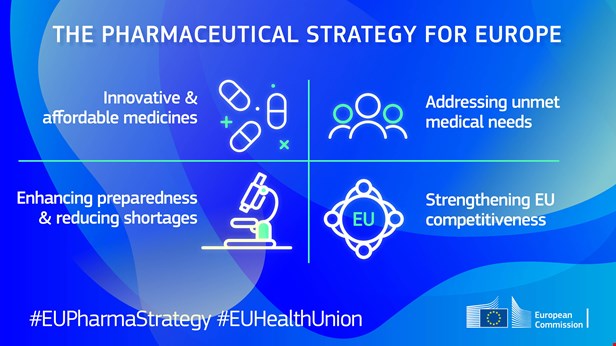EPF welcomes Europe's New Pharmaceutical Strategy

The European Patients’ Forum welcomes the Commission’s new Pharmaceutical Strategy for Europe, presented earlier this week. In our view, a main strength of the strategy is that it is centred around patients’ needs, with accessibility and affordability of medicines at the core.
EPF has been actively engaged in the strategy’s consultation process. Our position paper on ‘The Value and Pricing of Innovative Medicines’ contributes EPF’s perspective as a cross-disease umbrella patient organisation to the EU-level and international debate.
EPF strongly supports the concrete steps taken with this Strategy, towards ensuring that all patients across Europe have access to high-quality, affordable treatments based on their need, not means, without jeopardizing the sustainability of European healthcare systems.
It is particularly important to recognise the detrimental impact of out of pocket payments and lack of reimbursement on patients’ access to treatment. We also welcome the focus on shortages, which have a severe impact on patients’ safety and quality of life.
EPF’s position is based on the premise that health is a fundamental right and a critical investment in society. Medicines are not consumer goods like any others; and patients’ lives cannot be measured in purely economic terms. This strategy signals the Commission’s understanding that medicines should be considered an essential public good and a core element of health policy.
EPF fully supports stronger EU co-operation on assessment of value, cost-effectiveness, pricing and reimbursement, and procurement. In addition, we strongly support actions to increase transparency in the sector.
To ensure that innovation is more aligned to the needs of people and health systems, EPF stresses the need to address patient involvement across the life cycle of medicines and to work with patients to agree a meaningful, common European definition of both ‘unmet need’ and ‘added therapeutic value’. Without systematic patient involvement, the true value of innovative technologies, which have promise but also many uncertainties and risks, cannot be assessed. Moreover, systematic, upstream and mainstream involvement of patients in pharmaceutical R&D is not yet a given, despite progress in some areas.
EPF looks forward to contributing to the inclusive civil society dialogue put forward in the Commission’s proposal, contributing the patients’ perspective to identifying effective solutions at EU-level to improve access for all.
